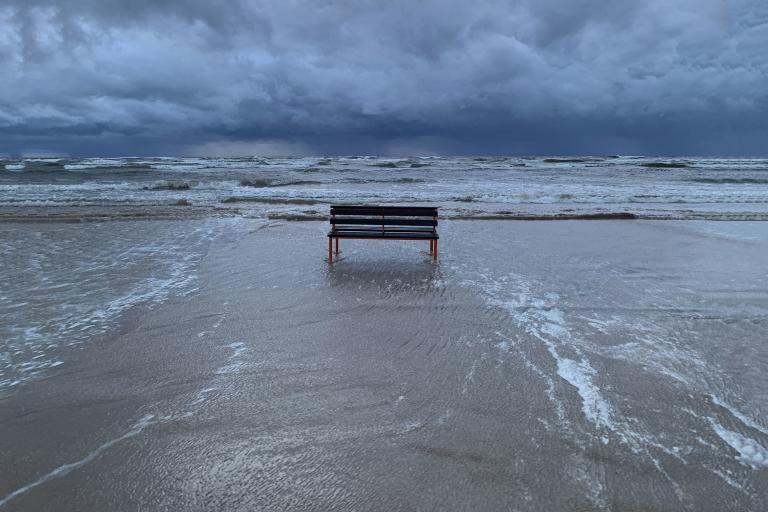The ocean and climate change

Studying the ocean is essential for gaining a better understanding of human-induced climate change.
Studying the ocean is essential for gaining a better understanding of human-induced climate change. The World Climate Research Programme (WCRP) co-sponsored by WMO, IOC, and ISC, coordinates efforts to understand fundamental questions about the ocean and climate and how their interaction leads to extreme events. GOOS and WCRP work with the Global Climate Observing System (GCOS) (also co-sponsored by WMO, IOC; UNEP and ISC), to support understanding the ocean-climate nexus.
The ocean stores most of the heat that is being trapped by humanity’s greenhouse gases and plays a major role in how climate change is progressing. It also absorbs some of the carbon dioxide emitted by human activities, causing sea water to become more acidic (or, more correctly, less alkaline). This is already damaging coral reefs and the reef fisheries on which some one billion people rely.
WMO coordinates efforts to study how the ocean and the atmosphere exchange gases and aerosols. In collaboration with other organizations, such as the Food and Agriculture Organization of the United Nations, WMO is also supporting observations that are needed for a better understanding of how climate change is affecting marine productivity and fisheries.
The WMO, along with UNEP are the parent organizations for the Intergovernmental Panel on Climate Change (IPCC). The IPCC is the United Nations body for assessing the science related to climate change. The IPCC Special Report on the Ocean and Cryosphere in a Changing Climate, released in 2019, was a significant benchmark contribution to the global understanding of the ocean, weather and climate.

